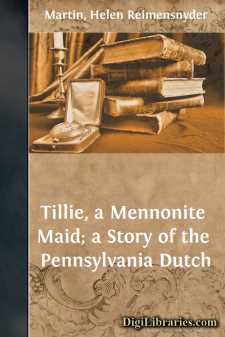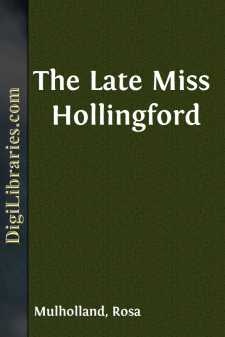Fiction
- Action & Adventure 183
- Biographical 15
- Christian 59
- Classics
- Coming of Age 5
- Contemporary Women 3
- Erotica 8
- Espionage/Intrigue 12
- Fairy Tales, Folklore & Mythology 236
- Family Life 169
- Fantasy 117
- Gay 1
- General 596
- Ghost 32
- Historical 808
- Horror 43
- Humorous 161
- Jewish 25
- Legal 4
- Medical 22
- Mystery & Detective 315
- Political 49
- Psychological 41
- Religious 64
- Romance 160
- Sagas 11
- Science Fiction 730
- Sea Stories 113
- Short Stories (single author) 538
- Sports 10
- Suspense 1
- Technological 8
- Thrillers 2
- Urban Life 31
- Visionary & Metaphysical 1
- War & Military 173
- Westerns 199
Classics Books
Sort by:
by:
Gilbert Parker
THE GOLDEN PIPES They hung all bronzed and shining, on the side of Margath Mountain—the tall and perfect pipes of the organ which was played by some son of God when the world was young. At least Hepnon the cripple said this was so, when he was but a child, and when he got older he said that even now a golden music came from the pipes at sunrise and sunset. And no one laughed at Hepnon, for you could...
more...
The Source of Perplexity The first and greatest of religious perplexities, the source of all the rest, arises in the mysterious fact of our existence as individual souls. Our perplexities spring from the very root of life. Why are we here at all? Did we but know the purpose for which we are present in the world, should we not have in our hands the key to all the questions we raise about God, freedom,...
more...
"OH, I LOVE HER! I LOVE HER!" Tillie's slender little body thrilled with a peculiar ecstasy as she stepped upon the platform and felt her close proximity to the teacher—so close that she could catch the sweet, wonderful fragrance of her clothes and see the heave and fall of her bosom. Once Tillie's head had rested against that motherly bosom. She had fainted in school one morning...
more...
CHAPTER I. I write this by desire of my brothers and sisters, that if any reports of our strange family history should come down to after generations the thing may be properly understood. The old times at Trevorsham seem to me so remote, that I can hardly believe that we are the same who were so happy then. Nay, Jaquetta laughs, and declares that it is not possible to be happier than we have been...
more...
by:
Jack McKenty
When Dr. Allport Brinton's alarm clock sounded, it brought madness. It was very clever; it not only rang chimes of amazing penetrating power, it turned on all the lights in the room, closed the window, and started his bath water running. But this morning it was not appreciated. In fact, as Dr. Brinton got out of bed, he silently called down evil on the technician who had built it for him. The...
more...
by:
John Galsworthy
PREFACE Each man born into the world is born like Shelton in this book—to go a journey, and for the most part he is born on the high road. At first he sits there in the dust, with his little chubby hands reaching at nothing, and his little solemn eyes staring into space. As soon as he can toddle, he moves, by the queer instinct we call the love of life, straight along this road, looking neither to...
more...
by:
Rosa Mulholland
PREFACE. "The Late Miss Hollingford" was published a good many years ago in the pages of All the Year Round. It has never till now been re-published in England, though it has been translated into French under the title of Une Idée Fantasque, and issued by the Bleriot Library, with a preface by M. Gounod. It has also appeared in Italian. In the Tauchnitz Collection it is bound in with No...
more...
CHAPTER I YERBA BUENA It was 1845. Three quarters of a century had passed since young Francisco Garvez, as he rode beside Portola's chief of Scouts, glimpsed the mystic vision of a city rising from the sandy shores of San Francisco Bay. Garvez, so tradition held, had taken for his spouse an Indian maiden educated by the mission padres of far San Diego. For his service as soldado of old Spain he...
more...
PHILIP HADDEN AND KING CETYWAYO At the date of our introduction to him, Philip Hadden was a transport-rider and trader in "the Zulu." Still on the right side of forty, in appearance he was singularly handsome; tall, dark, upright, with keen eyes, short-pointed beard, curling hair and clear-cut features. His life had been varied, and there were passages in it which he did not narrate even to his...
more...
by:
Emma Marshall
CHAPTER I. WAITING AND WATCHING. The sea lay calm and still under a cloudless sky. The tide was out, and there was only a faint murmur like the whisper of gentle voices, as the little waves told to the sands that they were coming back soon, for the tide had turned. It was yet early morning, and the old town of Great Yarmouth was asleep. The fishing boats had been out all night, and were lying like so...
more...











